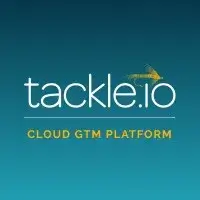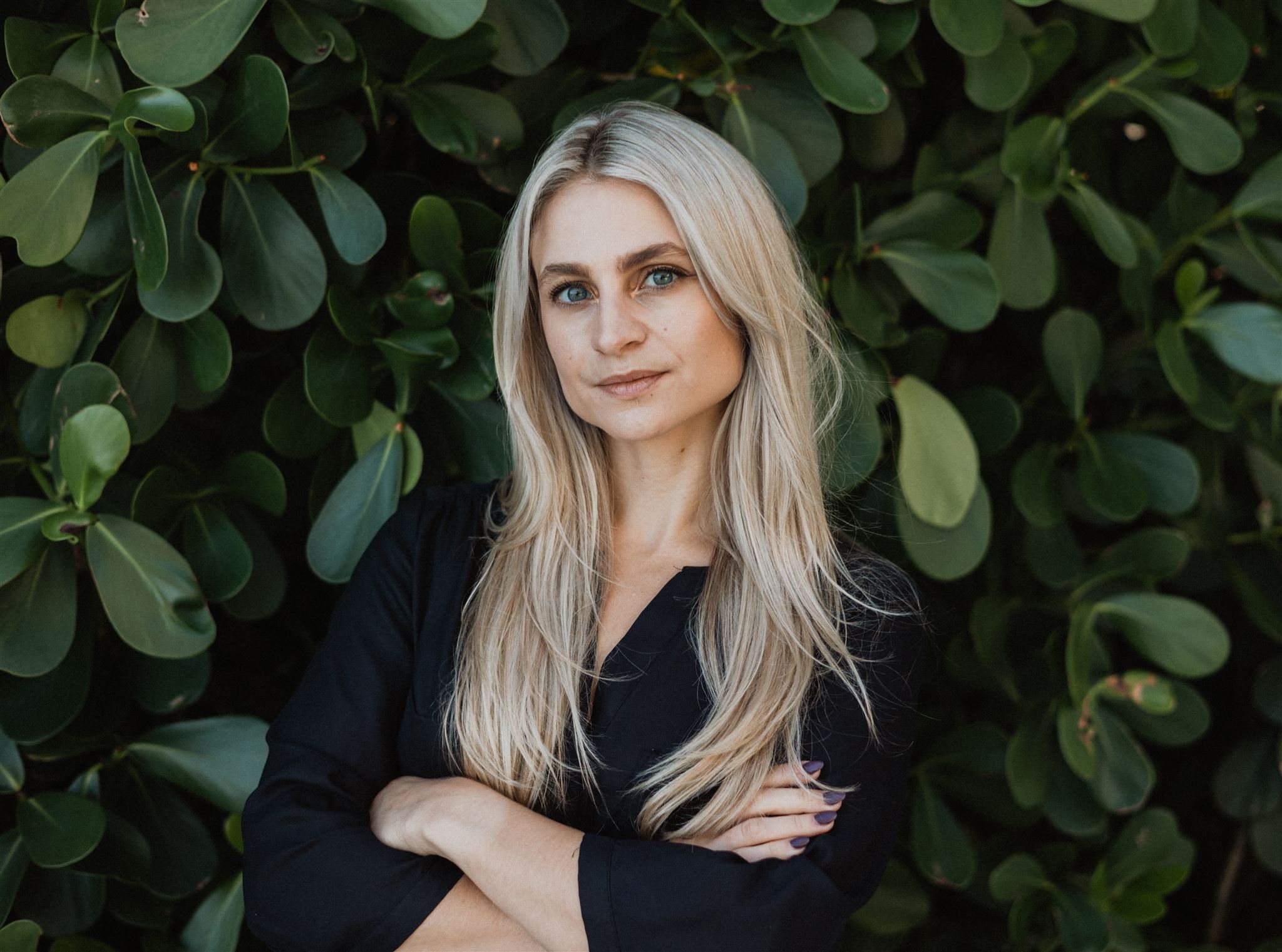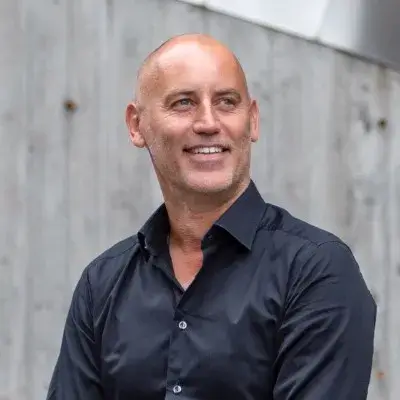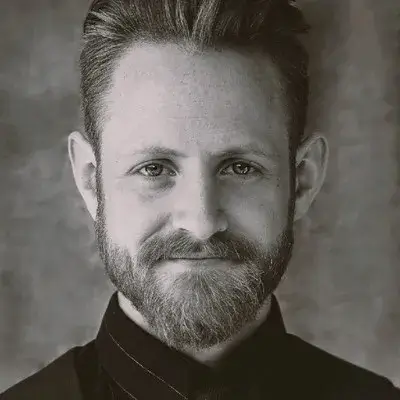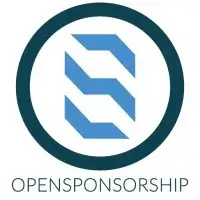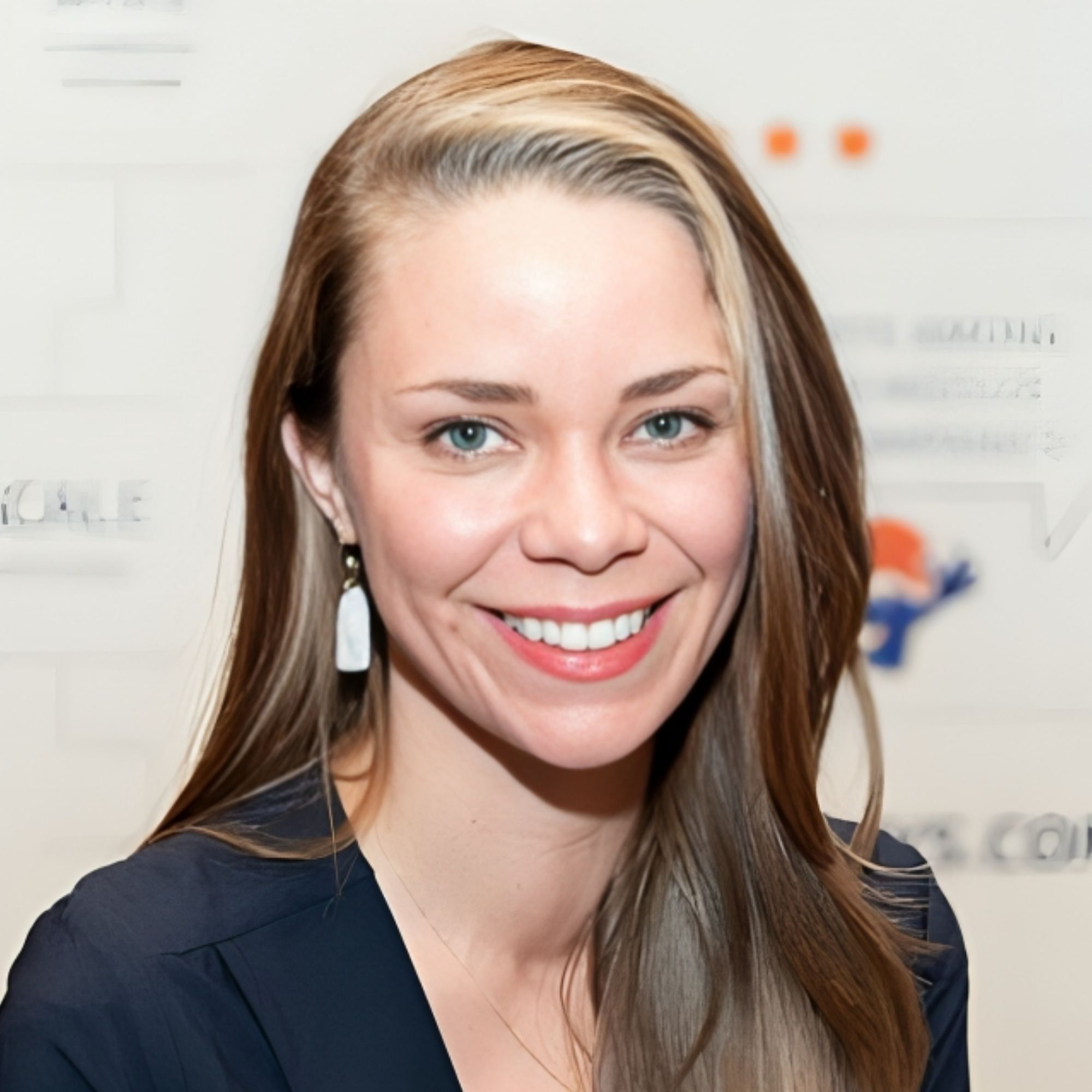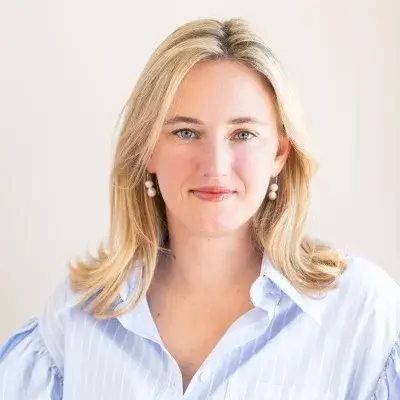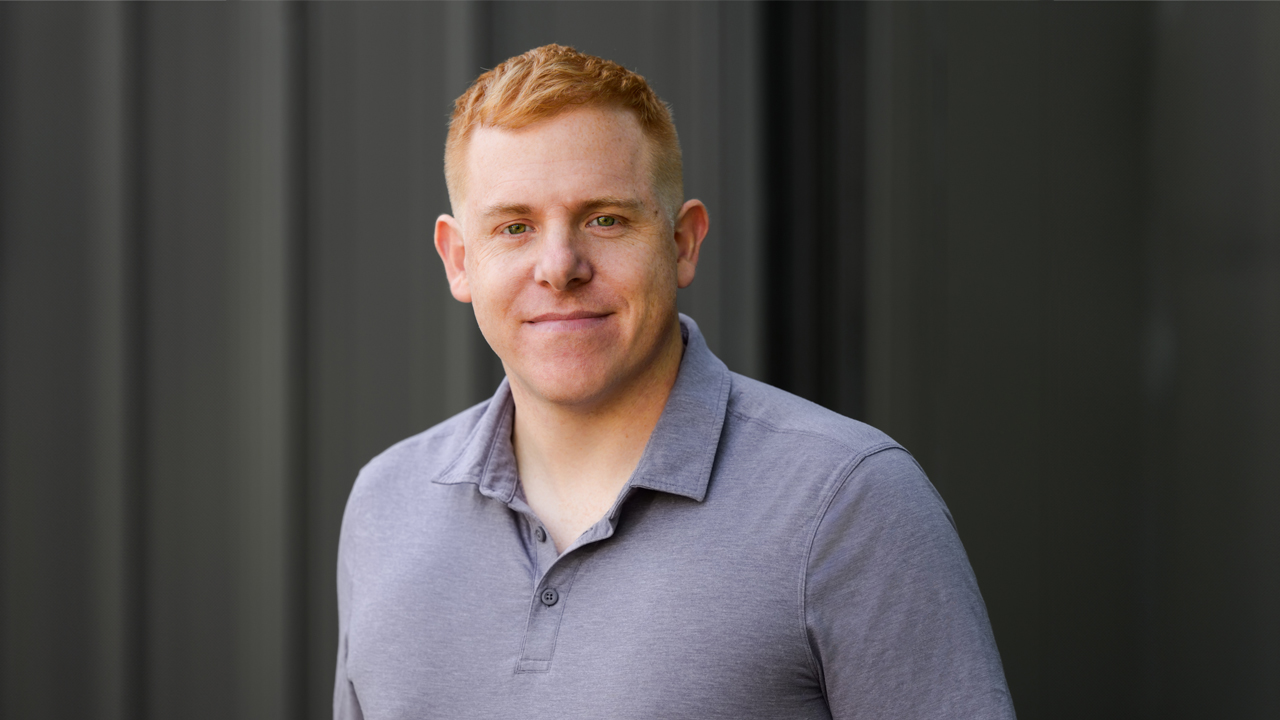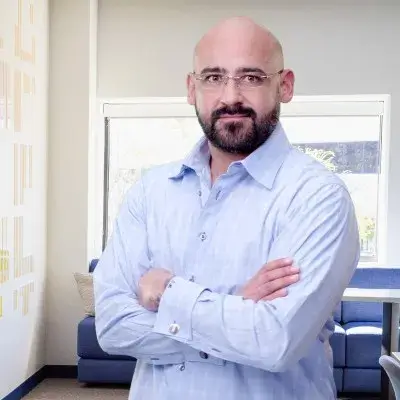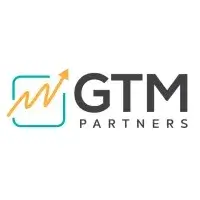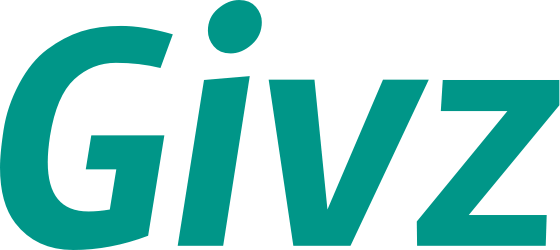Ready to launch your own podcast? Book a strategy call.
Frontlines.io | Where B2B Founders Talk GTM.
Strategic Communications Advisory For Visionary Founders
Conversation
Highlights
From LinkedIn Outreach to Category Creation: How Pylon Is Building the First B2B Support Platform
In a recent episode of Category Visionaries, Marty Kausas, CEO and Co-Founder of Pylon, shared how his team is pioneering the B2B support platform category after raising $20 million in funding. What makes their journey remarkable isn’t just the funding or the ambitious goal of building a “$10 billion plus market cap” company in seven years—it’s how they systematically researched, discovered, and created an entirely new category.
The Pivotal Journey to Finding Product-Market Fit
Unlike most founder stories that begin with “I experienced this problem and decided to solve it,” Pylon’s origin is refreshingly different. After leaving his software engineering role at Airbnb, which Marty “absolutely hated,” he spent 18 months pivoting through failed ideas.
“I ended up pivoting for around a year and a half with effectively no progress to show. Spent a year on one idea, six months on another, and like we had revenue for the second idea and it could have been like a bootstrap business, but it was not going to be the big thing I wanted it to be,” Marty explains.
The breakthrough came through a methodical customer discovery process that few founders attempt. Rather than building for themselves, Marty and his co-founders Robert and Adv implemented a disciplined outreach strategy:
“We were DMing people on LinkedIn every single day just like blindly who were in the customer support and customer success space. And specifically were targeting people with job titles that felt newer… support engineers, solutions engineers, like customer success managers, kind of things that haven’t existed for 10+ years.”
Each co-founder would send 40 personalized LinkedIn messages daily—120 total—asking for 15-minute conversations about workflows, priorities, and pain points. After months of calls, a pattern emerged: companies were increasingly supporting customers through Slack but lacked tools to track these conversations.
The Fundamental Insight: B2B Support Is Structurally Different
What started as a simple Zendesk-to-Slack connector evolved as customer feedback highlighted a more significant opportunity—the fundamental structural difference between B2B and B2C support needs.
“In B2C companies you only have one team that’s customer facing. So the customer support team. In B2B you have customer support, customer success solutions, professional services. All these different teams are adjacent that all need to work with customer data, build workflows around it, build, you know, ask questions about it, and collaborate on helping solve customer problems,” Marty explains.
This insight led to Pylon’s creation of an entirely new category: the B2B support platform. They recognized that existing tools like Zendesk, Intercom, and Salesforce Service Cloud were primarily designed for B2C use cases and forced into B2B environments.
Positioning Against “Villain Brands”
Rather than trying to create category awareness from scratch, Pylon made a strategic choice to position directly against what Marty calls a “villain brand”—Zendesk.
“One marketing tactic that’s worked really well for us is positioning ourselves as building the next Zendesk. And that’s actually, we started with that. Even today on LinkedIn, we don’t have our tagline as like building B2B support platform. We say building the next Zendesk because it’s just very one. A lot of people are fed up with Zendesk.”
This positioning creates immediate resonance with frustrated customers. Interestingly, Marty notes that their posts are “getting posted into Zendesk blind,” their internal employee forum, creating buzz inside the very company they’re challenging.
The LinkedIn Strategy Driving Half Their Pipeline
Perhaps most impressive is Pylon’s content marketing engine. Unlike companies that rely primarily on paid acquisition or outbound sales, Pylon generates approximately half their pipeline through founder-led LinkedIn content.
“We probably have half of our pipeline coming from LinkedIn, which is insane,” Marty shares.
The approach requires significant effort. All three co-founders post daily, with Marty writing all the content himself:
“Every Sunday, my process is I go to site class in Soma, the coffee shop, and I go sit there and I write for like 5 hours until my computer dies. And then so I’m spending like minimum five hours on Sunday and then throughout, that’ll probably get me like 9 posts.”
Their content strategy combines build-in-public transparency (sharing team photos and product developments), industry education (explaining B2B support needs), and frequent product releases to showcase their rapid development pace.
For founders intimidated by social media, Marty offers blunt advice: “You just have to get over that… usually I find the more credibility someone has or like, the better the school they went to, or better job they’ve had, or higher job title they’ve had, the harder it is for them. Because you basically have to be okay with embarrassing yourself in front of your entire work network by making a post that sounds stupid.”
The Future of B2B Marketing Is Personal
Throughout the conversation, one theme emerges clearly: the growing importance of personality-driven marketing in B2B.
“I think it’s so interesting how the new world of B2B is going to increasingly, I think, require these personalities to pop up. Because you don’t want to be a company that goes against a personality. Because people like people, they don’t like companies,” Marty observes.
This shift creates both challenges and opportunities for founders. As Marty puts it: “If you are a founder who’s not comfortable with that, it sucks. And I feel like the recommendation is kind of get over it or like, find a co-founder who is willing to do it or help you do it.”
Key Takeaways for B2B Founders
Pylon’s journey offers several valuable lessons for founders building new categories:
- Systematic research can beat personal experience: Instead of building based solely on their own problems, Pylon methodically researched market gaps through disciplined customer outreach.
- Look for structural differences in how customers operate: Their key insight wasn’t just about features but about the fundamental structure of how B2B support teams differ from B2C.
- Position against “villain brands”: Finding an incumbent that customers are frustrated with creates immediate resonance for your offering.
- Double down on what works: When LinkedIn showed traction, they intensified their efforts rather than diluting focus too early.
- Embrace personality-driven marketing: In B2B, human stories and connections create prospects who are “almost already sold” before their first sales call.
As B2B software categories mature and new ones emerge, Pylon’s systematic approach to category creation provides a compelling playbook for founders aiming to build billion-dollar companies by solving structural problems hiding in plain sight.
Actionable
Takeaways
Customer discovery through direct outreach:
Marty's team sent 120 personalized LinkedIn messages daily to potential customers before landing on their product idea. Rather than starting with their own problems, they systematically researched market gaps by targeting professionals with newer job titles that might indicate emerging workflows.
Follow emerging communication trends:
Pylon identified a key trend where B2B companies were supporting customers through Slack and Teams channels but lacked tools to track, measure, and integrate these conversations with their existing systems. B2B founders should look for similar shifts in how their target customers are working and identify the gaps in tooling.
Identify "villain brands" in your space:
Positioning against an incumbent that customers are frustrated with can be powerful. Marty's team positions Pylon as "building the next Zendesk," which immediately resonates with prospects tired of tools built for B2C use cases being forced into B2B environments.
Double down on what works:
When Pylon discovered LinkedIn was generating half their pipeline, they intensified their efforts rather than diversifying too early. Marty now spends 5+ hours every Sunday batch-writing LinkedIn posts for all three co-founders.
Embrace founder-led marketing for early-stage B2B:
Personal brands drive B2B buying decisions. Marty emphasizes that people connect with people, not companies. His most successful content combines build-in-public transparency (showcasing Pylon's growth) with personal storytelling that humanizes the brand and creates emotional connections with prospects.




